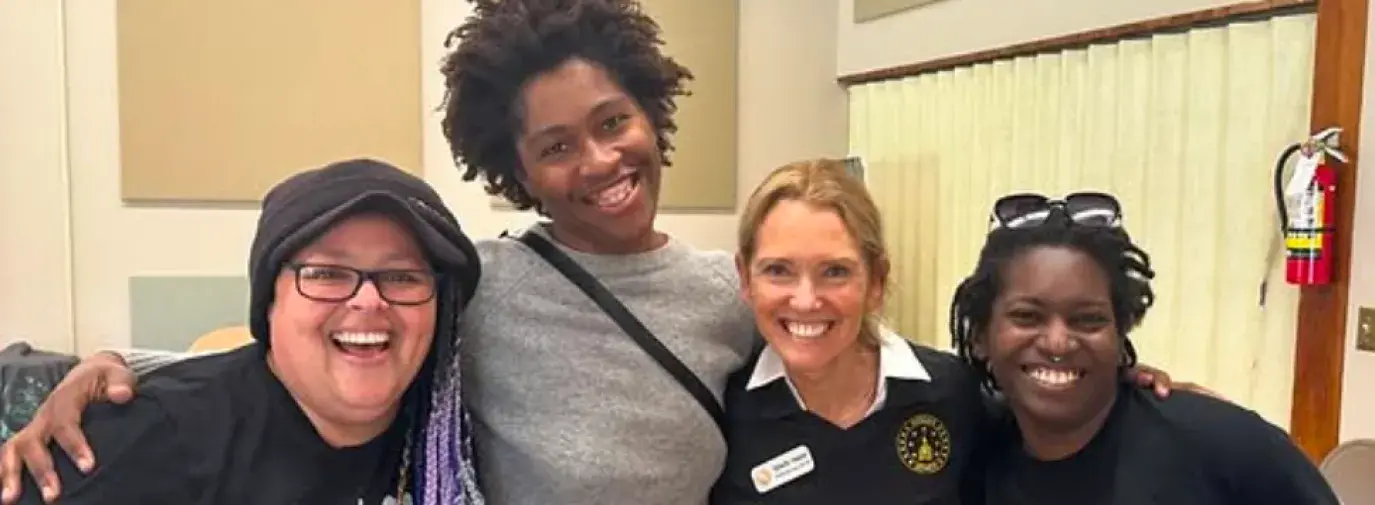
In the heart of Bloomington, where liberal ideals often clash with systemic realities of poverty and injustice, People’s Cooperative Market (“People’s Market”) has been cultivating more than just crops – it’s been nurturing a vision of food sovereignty that challenges deeply ingrained economic and racial structures.

As part of a long legacy of Black food sovereignty projects, the People’s Market has positioned itself as an agent of change. Its work goes far beyond simply distributing food; it's a radical act of reimagining economic systems and community support. The co-op operates under democratic principles building toward consensus, equity, cooperative economics, and collective values. In practice, this might look like voting on vendors; or receiving input from producers, vendors, organizational partners, and buyers. Most recently, to decide how to use grant funds, the co-op members incorporated input from families that receive free Community Supported Agriculture (CSA) shares, when they voted on which producers to purchase from.
The market operates using a sliding scale, supplying some Bloomington families with weekly CSAs at no cost. One can be a CSA member, ordering week to week (versus the traditional model of paying up-front at the beginning of each season), or folks can drop by the market and purchase locally-produced fruits and veggies, eggs, meat, bread, and more separately. A suggested sliding scale is on display for purchasers to choose what they pay based on their circumstances. When one enters the market, they will notice that all of the produce is displayed on one table, unlike the traditional farmers’ market model where each farmer sets up their own table. In this way, farmers, many of whom drive two hours to reach Bloomington, simply have to drop off their produce instead of selling for hours as well. There are also vendors with prepared foods, including baked goods, and artisans. There’s Colombian empanadas, coconut rolls, cakes, meat and vegan hand-pies—all delicious. There are also one-off special events like a clothing exchange or used book sale. Each vendor and event is chosen by keeping in mind the needs of the community.

"People often don't understand why we give food away for free," Lauren McCalister, the co-op’s incorporator, explains. "There's a misconception that free food undermines the economy. But that's wildly untrue." Her work is driven by a deeper understanding of economic resilience – one that recognizes how spaces of redistribution, from co-ops to consignment stores, actually increase the quality of life in communities. Low-cost to free food has a positive impact on the economy by increasing purchasing power for low-income individuals, stimulating local businesses through increased food spending, and improving workforce productivity by reducing hunger-related health issues, ultimately leading to a more stable economy, especially during economic downturns. In short: If an individual or family doesn’t have to worry about getting enough food and nutrition, they can focus on taking care of their lives in other ways and can allocate more of their spending to things beyond food.
An important aspect of its mission is a commitment to regenerative agricultural practices that heal both land and community. In its own greenhouse, the co-op uses—and encourages its partnering farmers to use—minimal tillage, crop rotation, and cover crops that restore soil health, rebuilding the ecosystem with each season. They prioritize chemical-free growing methods, recognizing that soil health is intrinsically linked to community health. Many of the farmers use organic, regenerative practices—or, “farming!” as McCalister would say—though they may not have gone through the expensive certification process. McCalister has personally visited the farms to learn more about their operations and to create real relationships with the farmers.
Last year at the RAFI (Rural Advancement Foundation International) conference, McCalister discovered a striking data point. A map showing food security between 2010 and 2020 revealed a stark truth: areas with Walmarts experienced less food security. Inspired, she challenged the researchers to create the inverse map – demonstrating how co-ops might be a solution (research in-progress).
The work is not without its challenges. In Bloomington, a town that prides itself on liberal values, McCalister has experienced firsthand the resistance to confronting systemic racism. "We've been positioned as the antagonists," she notes, reflecting on how the People’s Market’s very existence is often seen as a threat to the established order. The more traditional farmers’ market vendors claim that using a sliding scale (including $0) undermines their own business. However, the Bloomington Farmers Market is thriving, attracting thousands each Saturday morning. Those who benefit from a sliding scale and those who believe in a different model from the traditional capitalist one, find their way to the People’s Co-op. Community members are also welcome to visit and support both markets, as each has different vendors and meets different needs.


The co-op’s approach goes beyond individual interactions, recognizing the broader systemic conditions that shape food access and community health. "You can't just use food without acknowledging its political, social, and racial implications," McCalister asserts. Each low-cost or free assortment of produce, eggs, and bread—each cooperative interaction becomes an act of resistance and reimagining.
The People's Co-op represents more than a food distribution system. It's a model of community resilience, a challenge to economic assumptions, and a testament to the power of mutual aid and collective action. In a landscape where food can be a weapon of economic control, People’s Market is turning it into a tool of liberation.
As Bloomington – and the nation – continue to wrestle with questions of equity and food access, People’s Market stands as a beacon of hope, proving that another way of organizing our food systems is not just possible—it’s essential.
Learn more about the People's Co-Op Market here.



